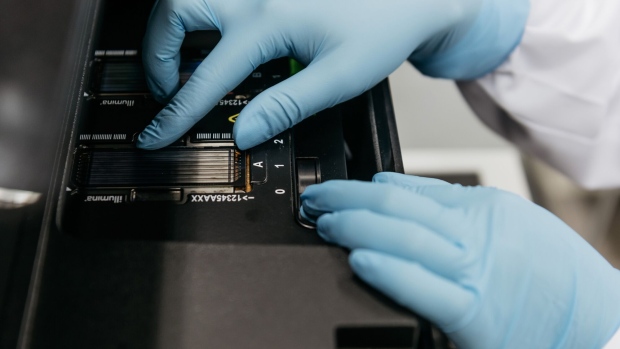Dec 16, 2023
Illumina Deal Sent Back to FTC for Review by Appeals Court
, Bloomberg News

(Bloomberg) -- A US appeals court found that Illumina Inc.’s $7 billion acquisition of cancer detection startup Grail Inc. violated antitrust laws, but sent the case back to the US Federal Trade Commission for a fresh review.
The panel found Friday that while the sale is likely to “substantially lessen competition,” the federal regulator misapplied antitrust standards when conducting an internal assessment of the deal and determined that its decision should be vacated.
The ruling by the Fifth Circuit Court of Appeals is the latest twist in a trans-Atlantic legal fight over the sale and will drag out any resolution for months more. It marks a key win for the regulator on its ability to challenge so-called vertical mergers — deals between companies that aren’t direct competitors but operate in the same supply chain.
“The 5th Circuit’s opinion is an important victory for antitrust enforcement because it clearly recognizes how vertical mergers can threaten competition,” said FTC spokesman Douglas Farrar in a statement. “As a result this decision marks a pivotal moment for those who want to protect open, competitive markets, and a huge win for consumers in the modern economy.”
Illumina said it’s reviewing the ruling.
Antitrust enforcers have struggled to block vertical deals with the Justice Department failing in bids to block AT&T Inc.’s acquisition of Time Warner and UnitedHealth Group Inc.’s purchase of Change Healthcare Inc., while the FTC recently lost a trial over Microsoft Corp.’s buy of Activision Blizzard Inc.
Illumina also had challenged the constitutionality of the FTC’s internal process in its appeal, but the Fifth Circuit panel said the company’s challenge was “foreclosed by Supreme Court authority.”
The European Commission ordered the company to unwind the transaction in October, even as Illumina continues to challenge the regulatory body’s authority to issue such an order. Now the US dispute will be returned to the FTC for further action.
Read More: Illumina Fights EU to Bring $7 Billion Deal Back From Brink
The New Orleans-based appeals panel found that the commission made a legal error and held Illumina to an “incompatible” standard under the Clayton Act, an anti-merger law, in five separate instances during the agency’s internal review process.
Biotech giant Illumina founded Grail and then spun it off in 2016 to develop a blood test to detect 50 types of early stages of cancer. Illumina then sought to buy it back and closed the deal in 2021, despite the FTC lawsuit and ongoing EU review. The company has been held separately since the reacquisition.
The FTC ruled unanimously in April that Illumina’s acquisition of Grail violated antitrust law, overturning an earlier decision by an in-house judge clearing the sale. The FTC had challenged the deal in 2021, arguing that it would stifle advances in the market for multi-cancer early detection tests and block competitors’ access to vital technology.
The case has become political. Dozens of Republican congressmen and state attorneys general called on the appeals court to clear the deal, arguing the FTC had overstepped its authority and that granting the tie-up would save lives by boosting development of Grail’s cancer test.
House Judiciary Committee Chairman Jim Jordan has suggested the agency improperly communicated with European antitrust enforcers as it worked to block the merger.
Illumina’s pursuit of the appeal has come at a cost. Activist investor Carl Icahn used the furor over the battle to oust the company’s board chair. He argued in a two-month proxy fight that Illumina had wasted money by sticking with its aggressive pursuit of the Grail acquisition, even over opposition from US and EU antitrust enforcers.
(Updates to add FTC quote in fourth paragraph. An earlier version of the story corrected the headline to remove that ruling was a win for Illumina.)
©2023 Bloomberg L.P.


